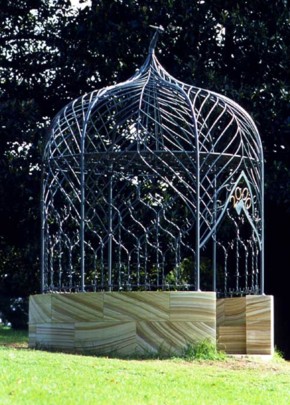Founding Fathers
I have long taken and interest and have a different historical spin on the early colony. I think it was a relatively insignificant project concocted by a few enthusiasts in London who had in mind an experiment for turning some selected gutter trash convicts into useful citizens and perhaps 'civilising' or bringing God's Grace to the natives of New South Wales into the bargain. They 'sold' the project to the government of the day on the grounds of the potential economic value of the pines and flax, identified on Cook's voyage, by Banks; by suggesting that the transportation would ease the load on domestic prisons by removing minor felons capable of being reformed; and by suggesting that a colony would strengthen the British strategic position in the south Pacific, and later the Indian Ocean, initially against the French. As this latter purpose came to fruition Sydney was heavily fortified to protect the British South Pacific fleet against the Russians. Some of those forts, notably Fort Dennison, are still in place today.
Many of these 'Founding Fathers' were under the influence of the Scottish Enlightenment and/or residual Scottish Puritanism. They considered it a noble project, possibly a duty, to encourage people to better themselves or alternatively to bring them the redemption of the Gospels. It was a pet project of Banks, in particular, who was keen to see the territory that he had helped to discover as a younger man, amount to something. I doubt that they fully believed in any of the official reasons for the undertaking; and clearly there was never whole-hearted enthusiasm for the project in the Parliament or Whitehall. The abolition of slavery was a hot political topic at the time and many were beginning to doubt the effectiveness of transportation at all. Yet the reformation of criminals was successfully undertaken in NSW and it was clearly not accidental.
The Bigge Inquiry (1819-21) was to set up by the Parliament investigate these issues. It raised concerns about the freedoms given to cooperative convicts and recommended harsher treatment more closely befitting a penal colony. Far from being violent, NSW was revealed to be one of the most benign and humane societies; by the standards of the time. Of course there were some bad choices among those transported, recidivists among the convicts and not a few bad apples among their guards. These generally found themselves relocated to Tasmania or Norfolk Island. But many made good; were emancipated; and given land. Bigge, somewhat contrarily, also recommended a higher degree of democratic government, leading to the establishment of the NSW Legislative Council, and a number of other beneficial reforms. As a result NSW soon enjoyed one of the highest living standards in the world. Bigge himself was revealed to be yet another enlightenment figure and qualifies, along with his opponent Macquarie, as a principal architect of Australia's future success. Not to be forgotten in this development, and the rise of the colony, was Brisbane who followed on from Macquarie and Bigge; another Scotsman.

